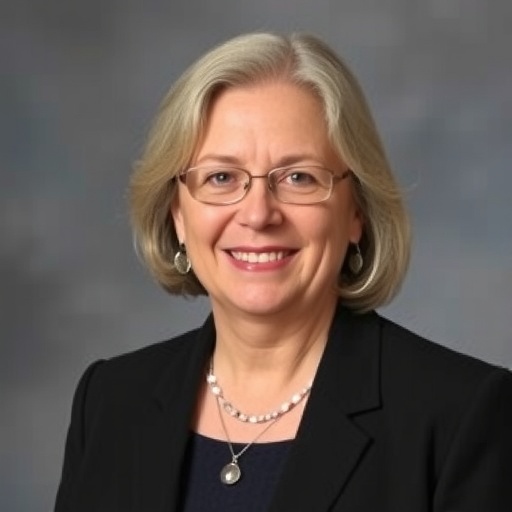The Gerontological Society of America (GSA), renowned as the nation’s oldest and largest interdisciplinary organization dedicated to the study of aging, has announced the appointment of Stephen Ewell, MBA, MS, to its Board of Directors as an at-large member. This significant development reflects GSA’s commitment to integrating technological innovation with gerontological research and practice. Ewell’s interdisciplinary expertise sits squarely at the nexus of consumer technology and aging, areas that are increasingly overlapping as digital advances redefine aging experiences globally.
GSA’s Board of Directors, consisting of twelve distinguished members representing the society’s wide-ranging demographic and professional spectrum, is primarily responsible for governance oversight and the establishment of strategic objectives. Tasked with policy formulation and strategic guidance, the Board significantly influences the trajectory of aging research and practice in the United States and beyond. Stephen Ewell’s appointment for a three-year term commencing January 1st signals a reinforced emphasis on technology’s transformative potential within the aging sector.
Ewell’s current role as Executive Director at the Consumer Technology Association (CTA) Foundation situates him at the forefront of bridging technology with the needs of older adults and individuals with disabilities. The CTA Foundation’s mission is focused on enabling access to innovative technologies that promote autonomy and improved quality of life for these populations. Under Ewell’s leadership, the Foundation actively funds and supports initiatives that cultivate independence and foster meaningful social connectivity through technological tools and platforms.
The intersection of aging and technology, often referred to as agetech, is an emergent multidisciplinary field that addresses the challenges and opportunities posed by demographic shifts and rapid digital innovation. Ewell also serves as Vice President of Accessibility & Agetech at CTA, underscoring his dual focus on inclusion and innovation. His expertise spans the development and deployment of assistive technologies, smart devices, and digital ecosystems tailored to enhance independent living and personal well-being among older demographics.
Judith L. Howe, PhD, MPA, FGSA, FAGHE, Chair of GSA’s Board, has applauded Ewell’s appointment, highlighting the timeliness and importance of his expertise amid an era marked by accelerating technological evolution. Her perspective underscores how emerging digital technologies—artificial intelligence, IoT-enabled health devices, and adaptive user interfaces—are poised to revolutionize eldercare, social engagement, and health monitoring, making Ewell’s insights invaluable to GSA’s strategic policymaking and research agendas.
The technological advances touching aging populations include sophisticated sensor technologies that enable real-time health monitoring, predictive analytics that anticipate medical needs, and user-centric designs that reduce barriers to technology use among older adults. These innovations have the potential to mitigate age-related declines in cognitive and physical function, enhance mobility through assistive robotics, and promote social participation to combat isolation. Ewell’s stewardship at CTA encompasses advocacy for widespread accessibility of these technologies, ensuring they are not only effective but equitable.
Moreover, the fusion of gerontology with information technology aligns with broader trends in precision medicine and personalized care. This convergence facilitates data-driven approaches to aging that can customize interventions based on an individual’s biological, psychological, and social profile. GSA, under the guidance of its Board, including Ewell, is positioned to leverage such advancements to promote innovative research that spans biomarker discovery, technology-enabled behavioral interventions, and policy frameworks responsive to digital health ecosystems.
The global demographic landscape, characterized by increasing longevity and a burgeoning older population, necessitates interdisciplinary collaboration to address associated challenges. GSA has long championed such collaborative efforts, bringing together experts from epidemiology, sociology, nursing, medicine, psychology, and now increasingly from technology sectors. Ewell’s cross-sector expertise reinforces GSA’s commitment to fostering integration of technology-driven solutions into aging research, education, and clinical practice.
In light of these developments, the CTA Foundation’s role extends beyond technology provision to include educational outreach, policy advocacy, and partnerships designed to scale impactful agetech innovation. These efforts contribute to reducing disparities in technology access and usage among older adults from diverse socioeconomic backgrounds. Ewell’s participation on the GSA Board strengthens pathways for translating technology research into practical applications that improve aging outcomes on a population level.
Fundamentally, the recognition of technology’s role in aging within a historically research-focused entity such as GSA marks a paradigm shift. It acknowledges that future aging-related research and practice must holistically incorporate technological literacy, user-centered design, and digital equity to remain relevant and effective. Ewell’s appointment symbolically and strategically advances this vision, aligning stakeholders towards a future where aging with dignity and autonomy is supported by cutting-edge technological innovation.
With over 6,000 members across more than 50 countries, GSA is uniquely positioned to influence global aging discourse. Its vision—meaningful lives as we age—resonates with a multigenerational imperative to harness scientific and technological progress. As the leader of CTA Foundation, Ewell brings valuable insight into how private sector ingenuity and nonprofit mission-driven initiatives can coalesce to eradicate barriers to technology use and unlock potential for older adults worldwide.
In conclusion, Stephen Ewell’s integration into GSA’s Board foregrounds the critical interplay of technology and aging in shaping the future of gerontology. His expertise underscores a broader institutional recognition that the challenges posed by aging societies require embracing technological innovation as a core component of research, policy, and practice. The appointment not only acknowledges the transformative potential of agetech but also galvanizes the field towards pioneering inclusive, evidence-based approaches that will improve the lives of older adults globally.
—
Subject of Research: Interdisciplinary approaches to aging and the role of technology in enhancing quality of life for older adults.
Article Title: The Gerontological Society of America Appoints Stephen Ewell to Board, Reinforcing the Nexus of Aging and Technology
News Publication Date: Information not provided
Web References: Information not provided
References: Information not provided
Image Credits: Information not provided
Keywords: Gerontology, Aging, Technology, Agetech, Accessibility, Consumer Technology Association, Aging Research, Digital Health, Assistive Technology
Tags: aging research and technologyaging sector transformationBoard of Directors governanceconsumer technology and agingCTA Foundation roledigital innovation in gerontologyenhancing autonomy for older adultsGerontological Society of Americainterdisciplinary approach to agingStephen Ewell appointmentstrategic objectives in agingtechnology and disability advocacy





